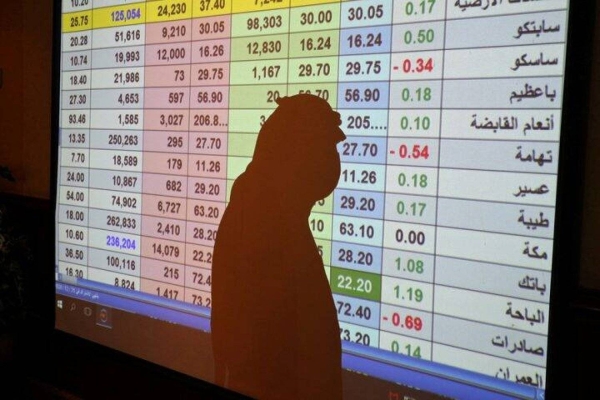The Tadawul All Share Index (TASI), the benchmark stock index in Saudi Arabia, experienced a decline of 209 points on Wednesday, closing at 12,044 points. The total turnover for the day reached nearly SR 8.1 billion. While the energy sector showed resilience, the banking sector saw a decline of about 2.49 percent. Oil prices, on the other hand, rose by 3 percent to reach $75 per barrel, marking their highest level in a month. These fluctuations in oil prices were influenced by geopolitical tensions in the Middle East, leading to similar trends in other Arab financial markets, with all Gulf and Arab markets experiencing declines ranging between 0.4 and 1.7 percent.
During Wednesday’s trading session, most of the traded stocks witnessed a decline, with shares of Al-Rajhi Bank and Al-Ahli (Saudi National Bank) leading the losses with a 3 percent drop to SR84.90 and 2 percent drop to SR33.80 respectively. Other stocks, including MBC, SACO, Saudi Ceramics, Amana Insurance, Herfy Foods, Riyadh Cement, TALCO, Maadaniyah, and Jamjoom Pharma, also ended the day with declines ranging between 3 and 6 percent. However, the share of Saudi Aramco, the highest weight on the index, remained stable at SR27.20. Additionally, Luberef and Kingdom Holding closed at SR126.80 and SR9.77 respectively, with falls of 4 percent and 2 percent as the stocks traded ex-dividend on Wednesday.
Despite the overall market decline, some stocks managed to see gains on Wednesday. The share of Retal rose by 1 percent to SR15.46, with the company announcing agreements with Roshan to develop residential units in Riyadh. Similarly, the share of Maaden also saw an increase of about 1 percent, closing at SR49.25. These positive movements in certain stocks highlight the diverse performance of companies in the Saudi stock market, reflecting a mix of factors influencing their individual valuations and investor sentiment.
As geopolitical tensions and oil price fluctuations continue to impact the global economy and financial markets, investors are closely monitoring developments in the Middle East and their potential implications on various sectors. In Saudi Arabia, the energy sector’s resilience amidst the broader market decline underscores its importance and stability in times of uncertainty. Meanwhile, the banking sector’s decline reflects the sensitivity of financial institutions to external factors and market conditions, highlighting the need for careful risk management and strategic decision-making in the current environment.
Looking ahead, investors will be watching closely for any further developments that may impact stock prices and market dynamics in Saudi Arabia and beyond. As economic and geopolitical uncertainties persist, maintaining a diversified portfolio and staying informed about sector-specific trends and news will be crucial for investors navigating the ever-changing landscape of the global financial markets. By staying alert and adaptable, investors can position themselves to make informed decisions and potentially capitalize on emerging opportunities in the stock market.










